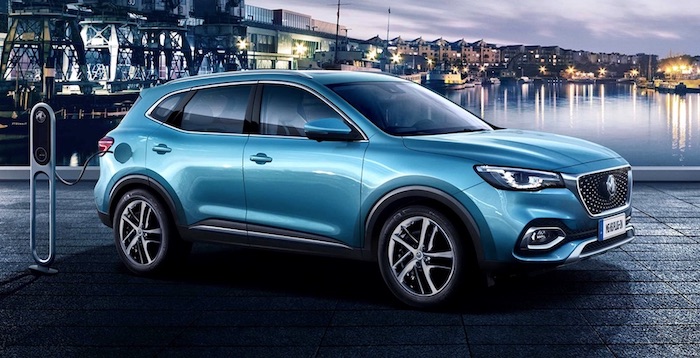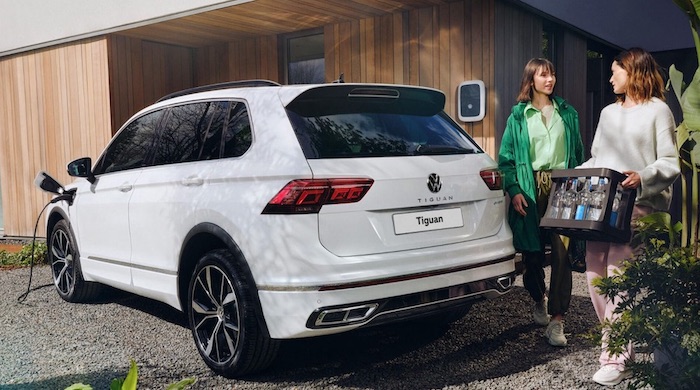Overview
Land Rover is an iconic British brand, famed globally for its off-road and four-wheel drive vehicles. Land Rover is owned by Jaguar Land Rover (JLR) Automotive PLC, a leading luxury vehicle manufacturer with a distinctive reputation of being British and iconic. However the automotive company is now owned by the leading Indian industrial conglomerate, the Tata Group.
The blue chip, India headquartered company is a leading player in the automotive sector via its Tata Motors subsidiary based in Mumbai. Tata acquired Jaguar and Land Rover from Ford Motor Company in 2008. JLR continues to conduct its operations from Coventry in the United Kingdom.
Range Rover electric vehicles (EVs) include:
- Range Rover Evoque PHEV
- Range Rover PHEV
- Range Rover Velar PHEV
- Range Rover Sport PHEV
Electric Cars: The Basics
For those of you new to zero-emission electric driving, we recommend a read of the following articles:
Sign up to the e-zoomed Electric Living newsletter
Range Rover PHEV SUV
The famed Land Rover Range Rover (simply known as Range Rover) is currently in its fifth generation. This iconic 4×4 SUV was launched in 1970 by British Leyland. The fifth generation luxurious SUV was revealed in London in October 2021. The SUV is now also available as a mild hybrid electric vehicle (MHEV) and a plug-in electric vehicle (PHEV). The pure electric Range Rover SUV is expected to be available from 2024.
The all new Range Rover plug-in hybrid SUV is certainly re-defining the landscape of plug-in hybrid electric vehicles, in particular, for the premium SUV segment. The latest generation of the Range Rover PHEV SUV incorporates a 38.2 kWh onboard EV battery, substantially larger than the average PHEV battery size (10 kWh to 20 kWh). This increased EV battery capacity is a game changer, as it enables the plug-in hybrid vehicle to truly leverage the benefits of electric driving i.e. to reduce driving costs and tailpipe emissions when driven on e-mode.
Driving a PHEV on e-mode is always cheaper than using the internal combustion engine (ICE). However, due to the limited electric range of the previous generation Range Rover PHEV, electric driving had not been leveraged to its maximum.
However, with the new Range Rover PHEV this is all set to change. The electric vehicle (EV) has a claimed EV range up to 70 miles (WLTP). Even accounting for all the factors that impact the pure electric range, the PHEV will be capable of delivering well over 50 emission-free miles.
This distance covers a significant portion of commutes, to include urban driving, but also a fair amount of motorway driving. Do keep in mind that the average daily distance driven by the majority of UK motorists is 30 miles a day.
Land Rover claims a fuel economy up to a whopping 353.1 mpg for the PHEV. To achieve anything close to the claimed fuel economy, the e-mode on the PHEV will need to be leveraged on a very regular basis. If the EV is driven primarily using the petrol combustion engine, the fuel economy is certainly not going to get anywhere close to the manufacturer claimed figure. Like, the real-world EV range, expect the real-world fuel economy to be impacted by a number of factors and lower than the manufacturer claimed economy.
To leverage the benefits of electric driving, having a fully charged EV battery is imperative. The Range Rover PHEV can be charged up to 50 kW DC charging: 0-80%: 40 minutes. Do keep in mind that not all plug-in electric cars are capable of DC rapid charging.
For longer journeys, best to plan the trip, such that the rest/coffee breaks coincide with the need to top up the EV battery. This way for longer motorway commutes, the cost of driving remains lower compared to using the combustion engine. Depending on the cost of charging, driving on the e-mode will cost between 5 pence and 10 pence per mile.
In all probability, on most occasions, the EV will be charged overnight at home. We at e-zoomed recommend the use of a dedicated EV charger for home charging. The easee EV charger is a good example. The PHEV can be charged up to 100% in 5 hours via a dedicated EV charger. We at e-zoomed do not encourage the use of a 3-PIN domestic socket to charge an electric car. Charging the plug-in hybrid using a domestic plug will take up to 15 hours.
We recommend a ‘topping up’ approach to EV charging. This way, the e-mode can be used more often and regular charging is also better for the long-term maintenance of the EV battery. Land Rover offers a warranty up to 6 years or 60,000 miles.
The all-wheel drive Land Rover P400e PHEV pairs a 3.0-litre (6 cylinder) petrol combustion engine with an electric motor (105 kW). Despite the size and weight of the EV (2,770 kg), acceleration is impressive: 0-60 mph in 5.7 seconds and a 140 mph top speed (maximum power: 440 HP/ torque: 620 Nm). The P510e AWD PHEV can achieve 0-60 mph in 5.2 seconds and has a 150 mph top speed.
The electric vehicle is available in both the standard and long wheelbase. The long wheelbase offers up to 7 seats. The PHEV is suitable for large families given the interior space and boot space of the EV. Land Rover claims the PHEV has tailpipe emissions as low as 18g (CO2/km).
The EV is suitable for both families and company-car drivers. Company-car drivers can take advantage of the lower Benefit-in-Kind (BiK) tax rate for electric cars. Bottom-line, electric driving is good for the environment and the wallet.
You can lease electric vehicles (EVs) via e-zoomed at very competitive prices!
| PROS | CONS |
|---|---|
| One of the most luxurious PHEVs on the market | Expensive, specially at the higher trim levels |
| Good EV battery size and zero emission electric range | Onboard charger limited to 7 kW |
| Efficient electric vehicle with good fuel economy | DC charging limited to 50 kW |
The Range Rover Plug-In Hybrid SUV (credit:JLR)
| At A Glance | |
|---|---|
| EV Type: | Plug-In Hybrid Electric Vehicle (PHEV) |
| Body Type: | SUV |
| Plug-In Car Grant (PiCG): | Not Available |
| Engine: | Electric/ Petrol |
| Available In UK: | Yes |
| Variants (2 Options) |
|---|
| Range Rover Plug-In Hybrid Standard Wheelbase (from £108,385) |
| Range Rover Plug-In Hybrid Long Wheelbase (from £130,235) |
| EV Battery & Emissions | |
|---|---|
| EV Battery Type: | Lithium-ion |
| EV Battery Capacity: | Available in one battery size: 38.2 kWh |
| Charging: | 50 kW DC charging: 0%-80%: 40 minutes. Onboard charger: 7 kW AC (0%-100%: 5 hrs) |
| Charge Port: | Type 2 |
| EV Cable Type: | Type 2 |
| Tailpipe Emissions: | 18 – 21g (CO2/km) |
| EV Battery Warranty: | 6 years or 60,000 miles |
| Average Cost Of Residential Charging | |
|---|---|
| Battery net capacity : 8.8 kWh | £1.27 |
| Battery net capacity : 11.6 kWh | £1.67 |
| Battery net capacity : 12.0 kWh | £1.73 |
| Battery net capacity : 13.10 kWh | £1.89 |
| Battery net capacity : 14.10 kWh | £2.03 |
- Note 1: The average cost of residential electricity in the UK varies depending on the region, supplier and type of energy used. An average for the UK is 14.40 p/kWh.
- Note 2: Not all EV manufactures make available the data on net EV battery capacity, and in a number of instances the EV battery capacity advertised, does not state if it is gross or net capacity. In general, usable EV battery capacity is between 85% to 95% of the gross available capacity.
| Charging Times (Overview) | |
|---|---|
| Slow charging AC (3 kW – 3.6 kW): | 6 – 12 hours (dependent on size of EV battery & SOC) |
| Fast charging AC (7 kW – 22 kW): | 3 – 8 hours (dependent on size of EV battery & SoC) |
| Rapid charging AC (43 kW): | 0-80%: 20 mins to 60 mins (dependent on size of EV battery & SoC) |
- Note 1: SoC: state of charge
| Dimensions | |
|---|---|
| Height (mm): | 1870 |
| Width (mm): | 2209 |
| Length (mm): | 5052 |
| Wheelbase (mm): | 2997 |
| Turning Circle (m): | 10.95 |
| Boot Space (L): | 818 |
| P400e PHEV | |
|---|---|
| EV Battery Capacity: | 38.2 kWh |
| Pure Electric Range (WLTP): | 70 miles |
| Electric Energy Consumption (Wh/km): | 287.6 |
| Fuel Consumption (mpg): | 313.9 – 353.1 |
| Charging: | 50 kW DC charging: 0%-80%: 40 minutes. Onboard charger: 7 kW AC (0%-100%: 5 hrs) |
| Top Speed: | 140 mph |
| 0-60 mph: | 5.7 seconds |
| Drive: | All-wheel drive (AWD) |
| Electric Motor (kW): | 105 |
| Max Power (HP): | 440 |
| Torque (Nm): | 620 |
| Transmission: | Automatic |
| Seats: | Up to 7 (long wheel base) |
| Doors: | 5 |
| Unladen Weight-EU (kg): | 2,770 |
| Colours: | 12 |
| NCAP Safety Rating: | N/A |
| P510e PHEV | |
|---|---|
| EV Battery Capacity: | 38.2 kWh |
| Pure Electric Range (WLTP): | 70 miles |
| Electric Energy Consumption (Wh/km): | 287.6 |
| Fuel Consumption (mpg): | 313.9 – 353.1 |
| Charging: | 50 kW DC charging: 0%-80%: 40 minutes. Onboard charger: 7 kW AC (0%-100%: 5 hrs) |
| Top Speed: | 150 mph |
| 0-60 mph: | 5.2 seconds |
| Drive: | All-wheel drive (AWD) |
| Electric Motor (kW): | 105 |
| Max Power (HP): | 510 |
| Torque (Nm): | 700 |
| Transmission: | Automatic |
| Seats: | Up to 7 (long wheel base) |
| Doors: | 5 |
| Unladen Weight-EU (kg): | 2,810 |
| Colours: | 12 |
| NCAP Safety Rating: | N/A |
While e-zoomed uses reasonable efforts to provide accurate and up-to-date information, some of the information provided is gathered from third parties and has not been independently verified by e-zoomed. While the information from the third party sources is believed to be reliable, no warranty, express or implied, is made by e-zoomed regarding the accuracy, adequacy, completeness, legality, reliability or usefulness of any information. This disclaimer applies to both isolated and aggregate uses of this information.










































